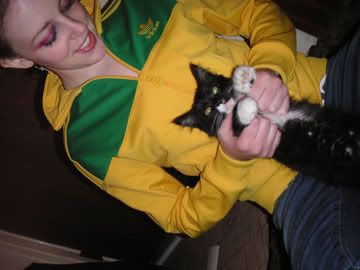Yesterday I finished reading Do Androids Dream of Electric Sheep? by Philip K. Dick. This book is well-known as the basis for Blade Runner, which is one of my favorite films.
Understandably, then, I can't help but discuss the movie while discussing the novel. First: if you disliked the movie, you should still read the book. They are quite different. Conversely, if you read the book and don't like it, still give Blade Runner a chance.
If you want to be challenged, read the book after watching the movie or before. I just recommend that you don't "read up" on the book before tackling it. There are so many articles out there that give too much away (e.g. Wikipedia's). I will strive to give little away.
So—the novel. We start out by learning of Deckard, the bounty hunter. He stands to make a thousand bucks for retiring (killing) an android (known in the film as a replicant). We create these androids to be servants on our colonies; they are in our image, and to 99.9% of the population, appear to be human. Deckard is out to retire them because they killed their masters in order to flee servitude and live on Earth.
The year is 2021 (in earlier editions of the novel, it was an earlier year. They changed this for some reason), and following World War Terminus, there are few inhabitants of Earth. The people who remain are obstinate (think of Harry Truman— not the President—who refused to leave Mt. St. Helens as it erupted) or "special". We've destroyed earth, leaving it a radioactive wasteland with few habitable locations. Gee, this sounds like it could really happen...
Most Earthlings have fled to colonies such as Mars. You're crazy to remain on Earth. If you move to a colony, you get your very own android slave! However, copulation with an android is illegal, so don't think about moving to Mars so you can get some hot robot ass. "Specials", also known as chickenheads, are humans considered too inferior to leave Earth — we don't want them reproducing or mucking up our new colonies. These specials usually have damaged genes from waste of the war, often resulting in mental retardation.
To keep ourselves company, we buy pets. However, real animals are hard to come by, not to mention expensive. Thus, most of us have electric animals—hence the title. There are a few key items all people have, including machines that manipulate our emotions and a T.V. that gets one government channel. We read about how barren our planet is—but very little about the physical setting (so when you watch Blade Runner, you are seeing the imagination of the screenwriters, director, etc, not Dick's).
Dick is focused more on character development and philosophical themes. There are many characters in the novel who don't appear in the film. Most notably is that of Phil Resch, a fellow bounty hunter. It is through this character that we, and Deckard, try to understand what the difference between a human and android (andy) is. Tests performed on potential andys try to reveal a lack of empathy. Empathy is a trait that only humans possess. So, is that what makes an andy inferior? Resch complicates this, as he is accused of being an android, which is something he had never considered. If he does test out as an android, he believes that suicide is the only resolution.
Androids are implanted with false memories, so if they are never told they are androids—if they are never constantly reminded—they could potentially believe themselves human. If they have emotions, memories and original thoughts, how are they not human? It's a delay in empathy. They feel for humans and animals, as they are taught to. But it is all calculated.
Great sci-fi writers layered theme upon theme in each novel. Because it's sci-fi, it's easier for the masses to consider: what it means to be human, what it means to be a slave, how we are destroying our planet, what the future holds, etc. In Do Androids Dream of Electric Sheep? we have to consider all of these things. Why are andys considered so inferior? We created them; they are organic, unlike our electric pets. So, is it really ok to hunt them down and murder them? What about Luba Luft, an extremely talented Opera singer who happens to be an andy? Deckard wonders, "how can a talent like that be a liability to our society?" (120). Why is it OK to kill them? Are humans really separated by this magic trait—empathy—if we have no problem killing androids?
This theme manifests itself, for real, in the United States when we consider that anything but heterosexual marriage is banned in many states. It wasn't too long ago that public schools were racially segregated. Standing in any retail location, walking down the street, or sitting in a classroom you feel the same kind of hate and superiority towards Mexicans, whether they are illegal immigrants or not. Why is it OK to blindly hate? In the novel, our cover is, that the androids killed their masters to escape. But why was it ok for them to be enslaved in the first place? We are the ones who gave them the capability to dream and feel, yet we don't allow them to do much more than till our fields or clean our houses (wow, this theme is relevant, yet again).
I need to stop, or I'll give away the whole book and write ten pages no one will read.
My recommendation is a Yes, read this book. Sorry if I got too political, but damnit, that's the point of sci-fi.
KK
Next up: The Picture of Dorian Gray by Oscar Wilde
Subscribe to:
Post Comments (Atom)

No comments:
Post a Comment